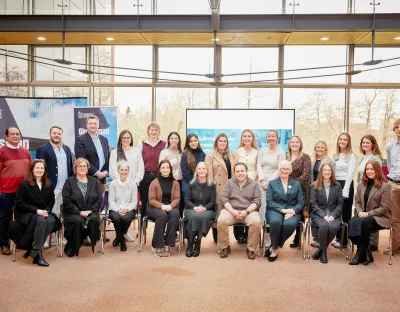
Enhancing Healthcare Education on Delirium through Cross-Border Collaboration
The University of Limerick, in partnership with Queen’s University Belfast, has introduced an innovative online educational tool designed specifically for undergraduate healthcare students. This initiative aims to improve understanding and management of delirium, a serious neurological condition often encountered in hospitals and care facilities across Ireland. The development of this e-resource signifies a significant step forward in advancing delirium education and fostering interdisciplinary approaches to healthcare training.
Delirium is characterized by a sudden and severe change in mental status, often manifesting as confusion, disorientation, and fluctuating consciousness. Despite its prevalence, particularly among the elderly and critically ill patients, it remains frequently under-recognized or misdiagnosed, leading to adverse outcomes. Early detection and appropriate management are vital to patient recovery, emphasizing the need for comprehensive education among future health professionals.
Strategic Focus on Delirium Education and Awareness
The newly launched e-resource is part of the Delirium Health Professionals Ireland (DelHPIre) project, an Ireland-wide research initiative that aims to elevate the standard of delirium care. Funded by the Higher Education Authority (HEA), the project underscores the importance of collaboration between academic institutions and healthcare providers to improve patient safety and outcomes.
This innovative platform provides essential information on the assessment, management, and prevention of delirium, emphasizing a multidisciplinary, holistic care approach. It is tailored for students studying medicine, nursing, pharmacy, occupational therapy, social work, and dietetics, ensuring broad applicability across healthcare disciplines. The resource incorporates multimedia elements such as videos, audio clips, and interactive activities to enhance engagement and facilitate active learning.
Impact of Co-Design Methodology and Student Engagement
A standout feature of this project is its co-design approach, where students and researchers from UL and Queen’s University Belfast collaborated to shape the content. This participatory methodology ensures that the material is relevant, user-friendly, and aligned with the needs of future healthcare professionals. Student involvement in the development process not only enriches the content but also empowers learners by giving them an active role in shaping their educational tools.
Sinead Kirby, a mental health nursing student at UL, expressed her appreciation, stating, “Getting involved in the co-design process allowed me to gain a deeper understanding of delirium and learn about effective non-pharmacological interventions. It was rewarding to collaborate with students from different disciplines and know that our perspectives impact real-world healthcare education.”
Similarly, Karen Mulvihill, a pharmacy student from Queen’s University Belfast, highlighted how the resource enhances multidisciplinary understanding: “It emphasizes the importance of team-based care and simple interventions that can significantly improve patient outcomes. As a pharmacy student, I now appreciate the role of multidisciplinary teamwork in managing deliria effectively.”
Expanding the Reach of Delirium Education
The online platform is accessible to healthcare students across Ireland and Northern Ireland, making high-quality, research-informed education broadly available. This shared resource bridges geographical and institutional gaps, fostering a unified approach to delirium awareness and management. The integration of this e-resource into curricula demonstrates its practical application and potential for widespread impact.
Furthermore, this project exemplifies the power of cross-border collaboration, promoting shared knowledge and best practices in healthcare education. Such initiatives are essential for tackling complex health issues like delirium that span organizational and national boundaries.
Future Directions and Opportunities
The success of this resource opens doors for further innovations in healthcare education. Continual updates based on emerging research and user feedback can enhance its effectiveness and relevance. Expanding similar co-designed, multimedia tools to cover other critical conditions could further strengthen multidisciplinary training and patient care.
For students and educators seeking to deepen their understanding of delirium, access the multidisciplinary delirium e-resource here: https://deliriumeresource.com/.
Take Action: Advancing Healthcare Education in Ireland
As the healthcare landscape evolves, continued commitment to innovative education is essential. Universities like UL and Queen’s demonstrate how strategic partnerships and student participation can create impactful learning tools. If you are a health professional student or educator, explore how integrating such resources can enhance your curriculum.
Interested in further advancing your healthcare training? Consider submitting your application to the University of Limerick or Queen’s University Belfast and join a community dedicated to improving patient care through education. Learn more about their health sciences programs and how they foster interdisciplinary learning and research.
If you’d like to stay updated on developments in healthcare education or participate in similar initiatives, subscribe to our newsletter or contact us directly. Together, we can support the next generation of healthcare professionals in Ireland and beyond.

